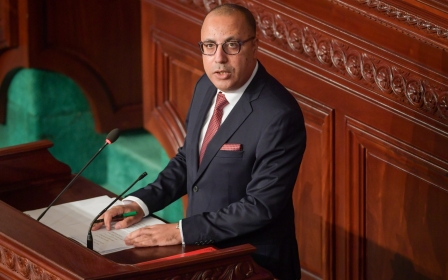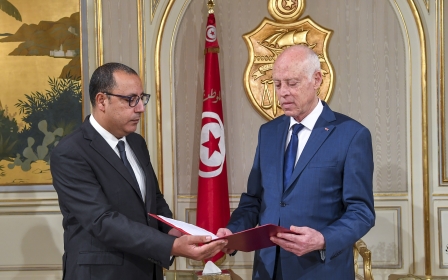Coronavirus pandemic hits Tunisians with 165,000 job losses

The coronavirus pandemic has plunged Tunisia into an economic crisis that has cost tens of thousands of jobs and collapsed the country's important tourism industry.
Despite initially containing the spread of Covid-19 during the first wave of the pandemic, Tunisia suffered 165,000 job losses during that period, Bechir Boujday, a member of the board of the employers' federation UTICA, told AFP.
The figures are predicted to get worse, according to UN predictions earlier in the pandemic that warned of up to 400,000 job losses.
The country is now having to tackle its worst outbreak of the virus, with the government introducing a curfew on Thursday after hospitals warned they are struggling to cope.
More than 7,000 Covid-19 cases were recorded in Tunisia last week, more than at any other time during the pandemic. With a population of around 11 million, the country has recorded over 400 deaths from the novel coronavirus out of 26,899 cases.
Nearly a third of small to medium-sized businesses are "threatened with bankruptcy," Boujday said.
Tunisia, which was already battling high unemployment before the start of the pandemic, has seen a record shrinking of its economy.
Gross domestic product fell by 21.6 percent in the second quarter of 2020, an "unprecedented contraction of economic activity," the National Institute of Statistics said.
The key tourist industry has all but collapsed, with tourism income plunging 60 percent and large numbers of hotels likely to close permanently, officials said last month.
In September, parliament approved a new technocratic government tasked with tackling deep social and economic woes in the North African country.
The new prime minister, Hichem Mechichi, said then that his government would focus on rescuing public finances and easing social hardship, saying that while political turmoil had dragged on, "some Tunisians have not found drinking water".
Mechichi is an independent member of parliament and served as Tunisia's interior minister under former prime minister Elyes Fakhfakh.
President Kais Saied appointed Mechichi to lead the government after Fakhfakh resigned over allegations of conflict of interest.
Middle East Eye propose une couverture et une analyse indépendantes et incomparables du Moyen-Orient, de l’Afrique du Nord et d’autres régions du monde. Pour en savoir plus sur la reprise de ce contenu et les frais qui s’appliquent, veuillez remplir ce formulaire [en anglais]. Pour en savoir plus sur MEE, cliquez ici [en anglais].




